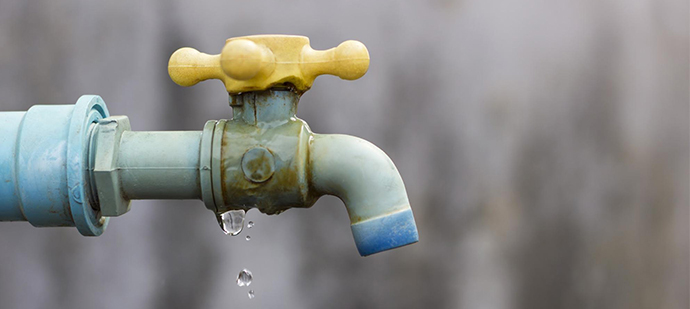Just how to Discover as well as Repair Work Water Leaks-- A Comprehensive Guide
Just how to Discover as well as Repair Work Water Leaks-- A Comprehensive Guide
Blog Article
Everybody has their own opinion when it comes to Finding hidden leaks.

Early discovery of leaking water lines can reduce a potential disaster. Some tiny water leakages might not be noticeable.
1. Check Out the Water Meter
Examining it is a guaranteed way that aids you discover leaks. If it moves, that indicates a fast-moving leakage. This means you may have a slow-moving leakage that could even be below ground.
2. Inspect Water Usage
Evaluate your water expenses as well as track your water consumption. As the one paying it, you ought to observe if there are any discrepancies. If you detect sudden changes, regardless of your intake being the same, it suggests that you have leakages in your plumbing system. Bear in mind, your water costs should fall under the same array every month. An abrupt spike in your expense indicates a fast-moving leakage.
A constant boost every month, also with the very same behaviors, reveals you have a slow leak that's also slowly escalating. Call a plumber to completely inspect your property, especially if you really feel a cozy area on your flooring with piping beneath.
3. Do a Food Coloring Test
When it comes to water intake, 30% comes from toilets. If the color somehow infiltrates your bowl throughout that time without flushing, there's a leakage between the tank and dish.
4. Asses Exterior Lines
Don't neglect to check your exterior water lines too. Needs to water leak out of the connection, you have a loosened rubber gasket. One little leakage can lose heaps of water and also surge your water bill.
5. Evaluate and also Evaluate the Circumstance
Homeowners ought to make it a habit to check under the sink counters as well as also inside cabinets for any type of bad odor or mold growth. These 2 warnings indicate a leakage so punctual interest is needed. Doing routine examinations, even bi-annually, can save you from a significant trouble.
If you understand your house is already old, keep a watchful eye on your heating units, pipes, pipelines etc. Check for stainings and weakening as most appliances as well as pipelines have a life expectancy. They will also normally degrade because of wear and tear. Don't wait for it to intensify if you presume leaking water lines in your plumbing system. Call a professional plumber right away so you don't end up with a dreadful mess in your house.
Early discovery of leaking water lines can reduce a prospective disaster. Some tiny water leaks may not be visible. Inspecting it is a proven way that helps you find leakages. One tiny leak can waste loads of water as well as surge your water bill.
If you think dripping water lines in your plumbing system, don't wait for it to intensify.
How to Know If Your Home Has a Hidden Leak
Water Meter Reveals Inexplicable Water Usage
If you’d like to test whether or not there’s a leak somewhere in your home, you can do this using your water meter. Here is how to conduct the test:
Don’t use any water in your home for at least 30 minutes; this also means not turning on faucets or water-using appliances.
Go outside, and check your water meter for activity.
If your water meter shows that there was activity, even though no one was using any water, this proves that there is a leak in your home.Visible Mold or Mildew Growth
Leaks behind walls create moist, dark environments that allow mold and mildew to grow and thrive. Eventually, you might see mold growth forming on the wall closest to a hidden leak.
If mold is growing in an area that receives a high amount of moisture, such as a bathroom, it may simply be an indication that better ventilation is needed. However, if you see mold growth on a wall or the ceiling in an area where you would not expect, you probably have a hidden leak.
Musty, Mildew Odor
Sometimes you might not be able to see the mold or mildew that is growing as a result of a leak. However, the smell can give the problem away just as easily. If you catch a whiff of something musty, there’s a good chance that old water is collecting somewhere in your home that you can’t see.
Stained/Warped Walls, Ceilings, or Floors
When your home soaks up water, a variety of red flags can become visible, including ceiling stains, bubbling drywall, warped walls, and sagging floors. While these issues can be caused by excess humidity, they can also be signs that a pipe or plumbing connection has started leaking behind your walls.
Inexplicably High Water Bill
After a while, you get a general sense for what your water bill should be. If you own a pool or sprinkler system, your bill will tend to be higher during summer. However, if you receive a water bill that seems especially high, and you can’t figure out what caused it, then you may have a hidden leak somewhere that’s increasing your bill.
https://www.plumbingjoint.com/blog/2019/july/how-to-know-if-your-home-has-a-hidden-leak/

As a passionate person who reads on Leaking water lines, I figured sharing that post was beneficial. Sharing is good. You won't know, you will be helping someone out. I take joy in reading our article about Top leak detection hacks.
Report this page